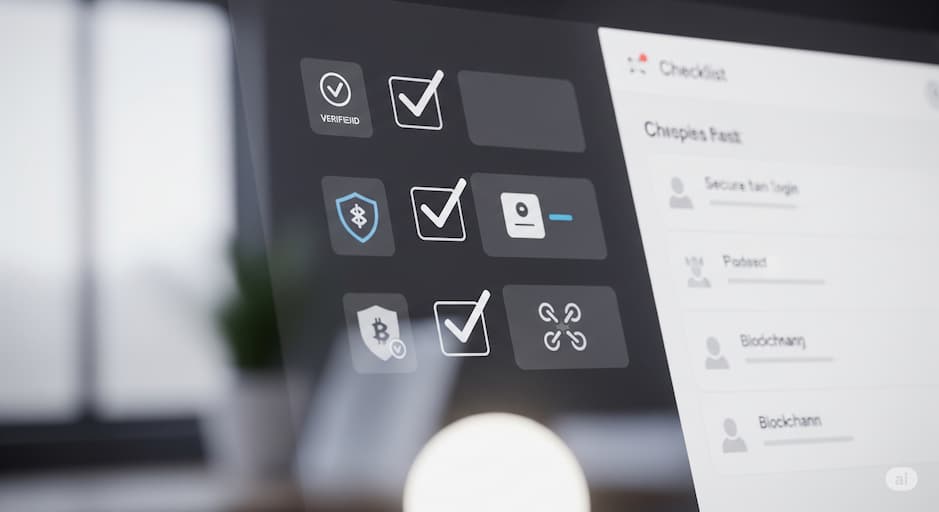Let’s imagine for a moment: You’re a startup founder in Berlin. You’ve just launched an innovative blockchain-based payment platform. Everything’s going great—until you receive a formal notice from BaFin, Germany’s financial regulator, asking for detailed customer verification protocols. You’ve heard of KYC and AML in blockchain, but now the stakes are real. What do you do?
Welcome to one of the biggest crossroads in the modern digital economy: how blockchain platforms, famous for decentralization and anonymity, can meet strict Know Your Customer (KYC) and Anti-Money Laundering (AML) regulations in one of Europe’s most regulated markets.
This article breaks down this complicated but fascinating topic into bite-sized, understandable pieces, so whether you’re an investor, entrepreneur, or curious reader, you’ll walk away smarter and better prepared.
First, What Are KYC and AML?
KYC (Know Your Customer) is a process financial institutions use to verify the identity of their clients. It typically involves collecting documents like a passport or ID, proof of address, and sometimes financial history.
AML (Anti-Money Laundering) refers to a broader framework of laws and procedures designed to prevent criminals from disguising illegally obtained funds as legitimate income.
In traditional banking, KYC and AML are standard. But in blockchain—where pseudonymity is the norm—it gets tricky.
KYC and AML in Blockchain: The Tension
Blockchain platforms, especially those dealing with crypto, operate on decentralized networks. This makes them inherently resistant to oversight, but also vulnerable to being used for illicit activities like money laundering, terrorist financing, and tax evasion.
In Germany, compliance with KYC and AML laws is not optional.
Since January 1, 2020, Germany has treated crypto custodians and exchanges as financial institutions under the German Banking Act (KWG). That means they must:
- Obtain a BaFin license
- Conduct full KYC checks
- Report suspicious activity
- Maintain AML protocols
(Source: BaFin.de)
The Real-World Relevance: Why This Matters
If you’re:
- A user of crypto wallets: You might have to submit ID documents soon
- A startup founder: You must integrate KYC/AML tools to avoid penalties
- A developer: You need to think about how data privacy and transparency can coexist
In Germany, failure to comply can lead to hefty fines, criminal charges, and permanent blacklisting by regulators.
Key Challenges in KYC and AML for Blockchain in Germany
- Decentralization vs. Regulation
Blockchains weren’t designed with central authorities in mind. Who’s responsible for compliance in a decentralized app (dApp)? The developers? The users? The node operators?
- Privacy Concerns
Users love blockchain for anonymity. KYC undermines this, potentially driving users to offshore or illicit platforms.
- Technical Integration
Traditional KYC involves document uploads and manual reviews. Integrating that into real-time blockchain systems is technically complex.
- Lack of Global Standardization
KYC/AML requirements vary from country to country. A German company must comply with EU law, but might also serve users from the US or Southeast Asia.
How Germany Is Tackling the Problem
Germany has taken a proactive, regulated-but-not-hostile approach to crypto:
- BaFin (Federal Financial Supervisory Authority) issues licenses to crypto custodians
- eWpG (Electronic Securities Act) allows for blockchain-based securities
- EU’s MiCA (Markets in Crypto-Assets Regulation) coming in 2024/2025, provides pan-European clarity
Germany also collaborates with Europol and the Financial Action Task Force (FATF) to set AML guidelines.
Examples of KYC and AML Tools Used in Germany
- Chainalysis: Blockchain analysis software used to track suspicious transactions
- Onfido and Sumsub: AI-powered identity verification tools
- IDnow: Used by German banks and fintechs to verify identity via video call
These tools are integrated into crypto exchanges, DeFi gateways, and even NFT platforms operating in or from Germany.
Practical Steps to Comply with KYC and AML in Blockchain
If you’re launching or running a blockchain platform in Germany:
- Apply for a BaFin License
Even non-German firms must apply if they target German users.
- Implement Tiered KYC
Let users perform basic functions without KYC, but require full verification for higher transaction limits.
- Automate Where Possible
Use AI-powered KYC tools to reduce manual workloads and speed up onboarding.
- Audit and Document Everything
Keep logs of user transactions, suspicious activity reports, and KYC documentation for at least five years (as required by German law).
- Educate Your Users
Let them know why KYC is necessary, how their data is protected, and what happens if they don’t comply.
What’s on the Horizon: Future Improvements
- Self-Sovereign Identity (SSI)
These are decentralized, user-owned digital IDs. They let users prove who they are without sharing sensitive data. Projects like uPort and Sovrin are gaining traction.
- Zero-Knowledge Proofs (ZKPs)
ZKPs let users verify information (like age or location) without revealing actual data. This could bridge the privacy/regulation gap.
- Standardized EU-Wide Rules
The upcoming MiCA regulations will harmonize AML/KYC across Europe, easing the burden on multi-national platforms.
- AI-Driven Monitoring
AI can flag abnormal behaviors across blockchains more efficiently than manual review—helping regulators and firms alike.
Final Takeaways
- KYC and AML in blockchain is no longer a future problem—it’s a current reality in Germany.
- Compliance doesn’t mean the death of decentralization—but it does mean evolution.
- The balance between privacy, innovation, and regulation is delicate but doable.
Whether you’re a builder, user, or policymaker, understanding these dynamics can help you stay ahead of the curve and avoid costly mistakes.
Reflective Closing
So, next time someone says, “Blockchain is ungovernable,” ask them this:
“Isn’t smart regulation just another kind of innovation?”
As Germany—and the world—figures out how to make blockchain work for everyone, being informed is the smartest investment you can make.
References





